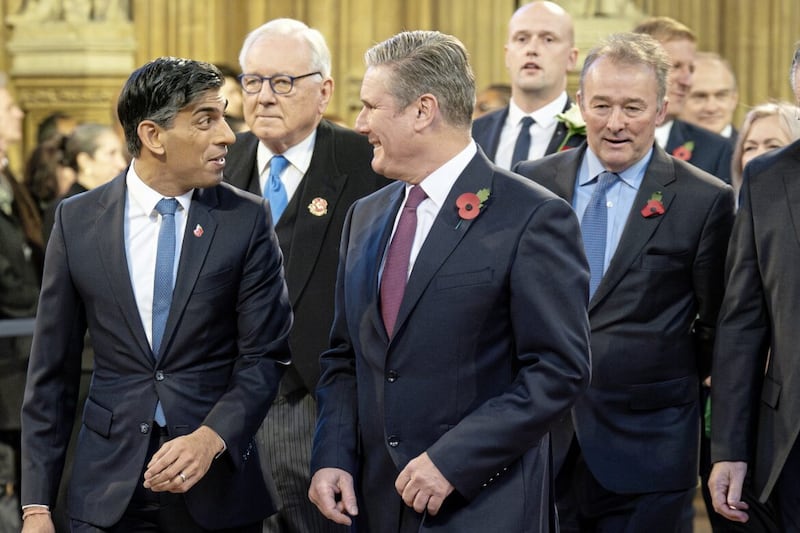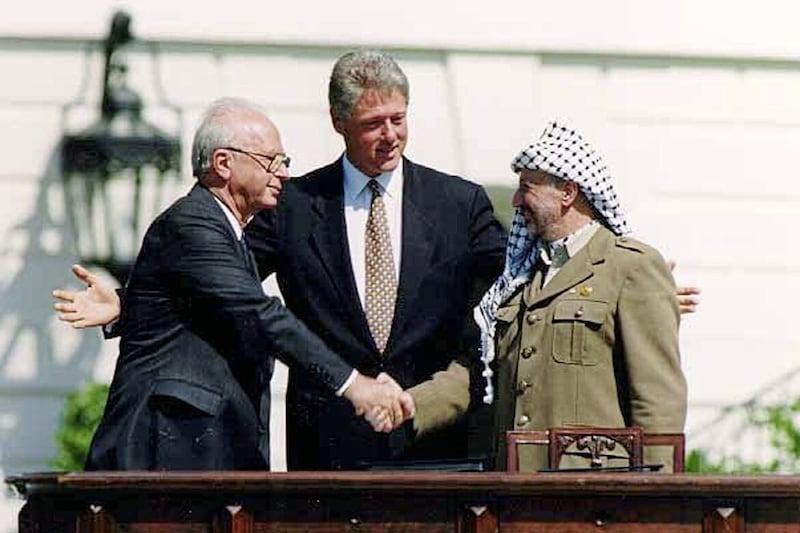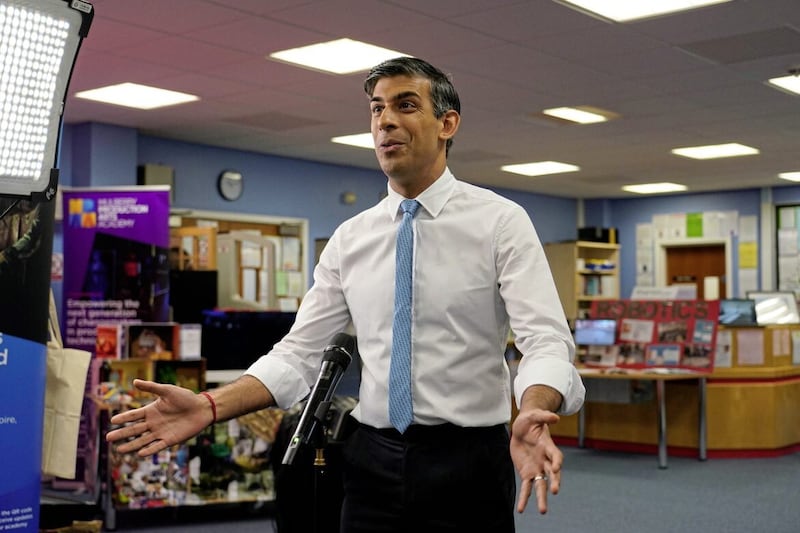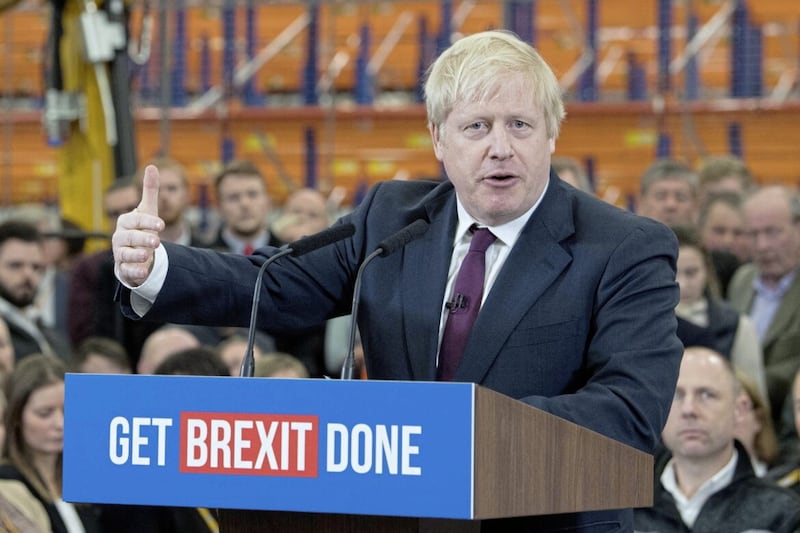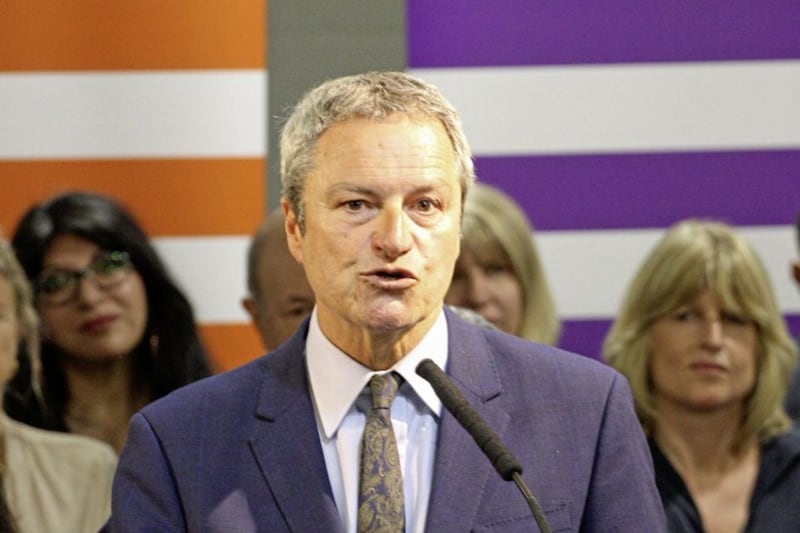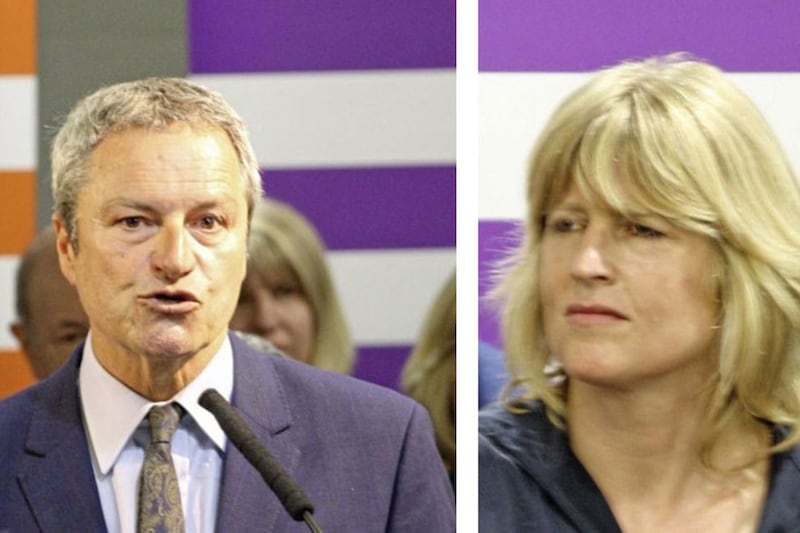Some conversations are so powerful they stick in the mind for years.
One happened just over a decade ago. I was in Israel making a documentary about the anniversary of the 1961 televised trial of the Nazi Holocaust organiser Adolf Eichmann.
Eichmann was an unrepentant brute. He escaped Europe after the war to live in Argentina. Israeli agents from Mossad kidnapped him and brought him to justice in Jerusalem.
While the trial brought retribution, it also did something politically significant. Jewish people from around the world – Russia, eastern Europe, the Balkans, Arab countries, the United States and elsewhere – had come to make a new life in this new Israel. Eichmann’s public trial helped bring the Jewish diaspora together into the disputatious, vulnerable, Israeli state.
While making the documentary I met an Israeli academic who talked to me at length about both history and Israel’s current difficulties in the 21st century. When she learned that I had a background in Northern Ireland (then enjoying relative peace after the Good Friday Agreement), she drew a comparison between what might be called the historical Irish question and the historical Israel question.
Read more:
Why republicans and loyalists support different sides in the Israeli/Palestinian conflict
Patricia Mac Bride: Gaza horrors show truth is indeed the first casualty of war
Gavin Esler: I'm suffering an acute case of BOBES – Bored Of Brexit Excuses Syndrome
Nationalists and unionists' 'double minority' mindset
Her words have been in my head ever since. She said that the insecurities of Israel and the Palestinians were not unlike the insecurities of unionists and nationalists in Northern Ireland. Both places had what she called the mindset of a “double minority”.
She explained that Palestinians and Israelis, like unionists and nationalists, had reasons to feel both weak but also strong. Palestinians were weak compared to the might of Israel, but Israel’s nine million people felt extremely insecure surrounded by 450 million or more Arab people, plus tens of millions more Muslims around the world.
She suggested that maybe Irish nationalists might historically have felt insecure as a minority in Northern Ireland but they could at least feel they were in a majority on the island of Ireland.
That meant unionists might feel strong as a majority in Northern Ireland but perhaps a lasting peace would always be fraught with difficulty because unionists had reasons to feel insecure on the entire island of Ireland.
People who feel insecure, she said, are not being irrational when they worry that the Other Side cannot be trusted with peace and may eventually threaten their way of life.


Constructive politics in Northern Ireland
This idea of “double insecurity” was a stark lesson about history but also about modern politics, diplomacy, and the difficulties of peace-making.
Of course there are profound differences between Gaza and Israel right now and the suffering we have experienced in Northern Ireland. But the similarities are there too. Both conflicts have been based on political failures and the mutual insecurities that we can all point to in history. Anyone remember 1641, 1690, 1916, 1922 or, for Israel and Palestine, 1948, 1967 and 2023?
No one can be sure what will happen next in Gaza. No one can be entirely sure when – if – constructive politics will begin again in Northern Ireland. What we can be sure of is that old saying that those who do not learn from history are condemned to repeat it.

For centuries, as Winston Churchill put it in 1922, the “integrity of their quarrel” has divided people on the island of Ireland. For centuries – from the medieval crusaders back to Roman times – the Holy Land has been disputed between ancient and modern tribes.
Lessons from Gaza and Northern Ireland
Perhaps the lesson from both conflicts is that we should not just remember our history, but learn from it enough to avoid being foolish and repeat it.
That Israeli academic summed up for me also why solutions by force of arms rarely work forever, because they may only temporarily bottle up resentments and fear.
She told me that since almost every Israeli serves in the military, “if all you have is a hammer then everything looks like a nail”. At some point the talking has to begin. The gunfire has to cease. And what then?
As we watch Gaza from afar, in the relative safety of our own homes, maybe Northern Ireland’s politicians should take a moment to think about a future better than the past.
:: Gavin Esler is an Irish News columnist and author, most recently of Britain Is Better Than This.




